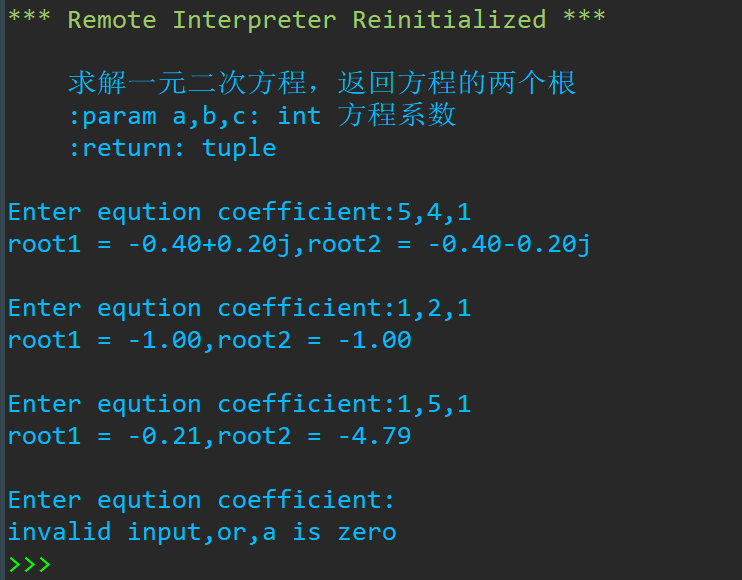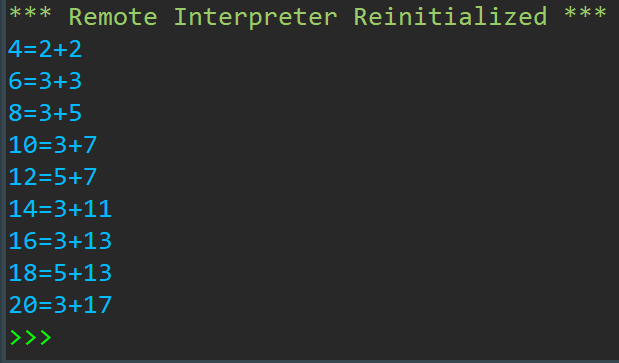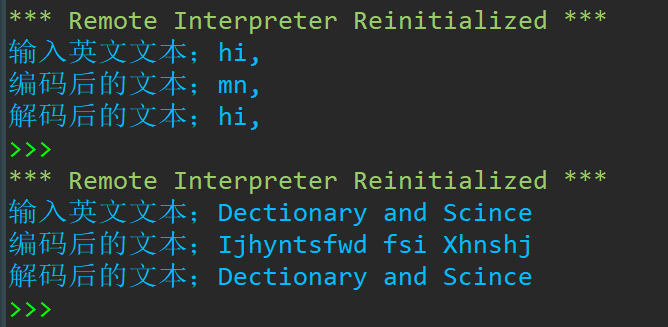实验四 函数与异常处理应用编程
print(sum) sum = 42 print(sum) def inc(n): sum = n + 1 print(sum) return sum sum = inc(7) + inc(7) print(sum)

不是
第一次:Build-in
第二次:Global
第三次:Local
第四次:Global
list1 = [1,9,8,4] print( sorted(list1)) print( sorted(list1,reverse = True)) print( sorted(list1,True))

是
def func(a,b,c,/,*,d,e,f): return( [a,b,c,d,e,f] ) print(func(1,2,3,d = 4,e = 5,f = 6))

def solve(a,b,c): ''' 求解一元二次方程,返回方程的两个根 :param a,b,c: int 方程系数 :return: tuple ''' delta = b*b-4*a*c delta_sqrt = abs(delta)**0.5 p1 = -b/2/a p2 = delta_sqrt/2/a if delta>=0: root1 = p1 + p2 root2 = p1 - p2 else: root1 = complex(p1,p2) root2 = complex(p1,-p2) return root1,root2 print(solve.__doc__) while True: try: a,b,c = eval(input('Enter eqution coefficient:')) if a == 0: raise except: print('invalid input,or,a is zero') break else: root1,root2 = solve(a,b,c) print(f'root1 = {root1:.2f},root2 = {root2:.2f}') print()

def list_generator(a,b,c = 1): y = [] while a<=b: y.append(a) a+=c return y list1 = list_generator(-5,5) print(list1) list2 = list_generator(-5,5,2) print(list2) list3 = list_generator(1,5,0.5) print(list3)

def is_prime(n): x = 2 m = True if n == 2: return True while n > x: if n%x == 0 and m == True: m = False else: x+=1 return m for number in range(2,21,2): for x in range(2,int(number/2)+1): y = number-x if is_prime(x) == True and is_prime(y) == True: print('{}={}+{}'.format(number,x,y)) break

def encorder(text): list = [] for i in text: if 65<=ord(i)<=85 or 97<=ord(i)<=117: list.append(chr((ord(i)+5))) elif 86<=ord(i)<=90 or 118<=ord(i)<=122: list.append(chr(ord(i)-21)) else: list.append(i) return ''.join(list) def decorder(text): list = [] for i in text: if 70<=ord(i)<=90 or 102<=ord(i)<=122: list.append(chr((ord(i)-5))) elif 65<=ord(i)<=69 or 97<=ord(i)<=101: list.append(chr((ord(i)+21))) else: list.append(i) return ''.join(list) text=input('输入英文文本;') print(f'编码后的文本;{encorder(text)}') print(f'解码后的文本;{decorder(encorder(text))}')

def collatz(n): if n%2 == 0: return n/2 else: return 3*n+1 try: n =int(input('Enter a positive integer:')) if n > 0: list = [] while n != 1: list.append(n) n = collatz(n) list.append(1) print(list) else: print('Error:must be a positive integer') except: print('Error:must be a positive integer')



 浙公网安备 33010602011771号
浙公网安备 33010602011771号